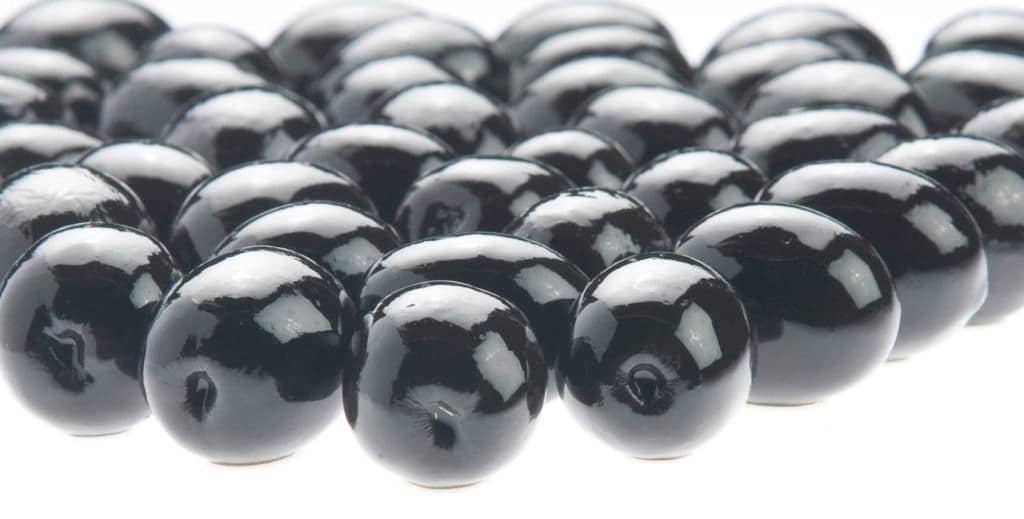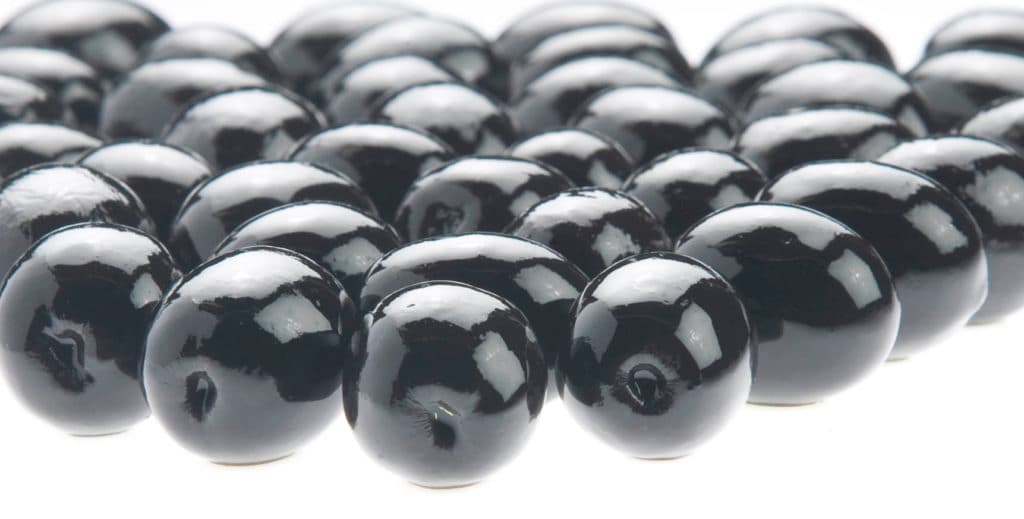 Olives are the fruit product of the olive tree. The olive fruit becomes blackish-purple when fully ripe. However, some olive varieties are green when ripe and some are copper brown. Raw olives taste bitter because they contain an alkaloid, although a few varieties are sweet in taste and can be eaten after sun drying, according to the California Rare Fruit Growers. Black olives offer an array of health and nutritional benefits.
Olives are the fruit product of the olive tree. The olive fruit becomes blackish-purple when fully ripe. However, some olive varieties are green when ripe and some are copper brown. Raw olives taste bitter because they contain an alkaloid, although a few varieties are sweet in taste and can be eaten after sun drying, according to the California Rare Fruit Growers. Black olives offer an array of health and nutritional benefits.
Promotes Digestive Health
Black olives are a good source of dietary fiber. A 100-gram serving — about 3.5 ounces — of ripe olives provides 3.2 grams of total dietary fiber. The recommended daily intake of fiber is 38 grams for men and 25 grams for women up to 50 years old. Soluble fiber can help lower blood cholesterol and glucose levels, while insoluble fiber adds bulk to your stool and promotes the movement of material through your digestive system. A diet rich in dietary fiber helps maintain bowel health, control blood sugar levels, maintain healthy weight and lower cholesterol levels.
Iron
Ripe olive contains about 3.30 milligrams of iron per 100-gram serving. The recommended dietary allowance for iron for adult males is 8 milligrams per day and for adult female is 18 milligrams per day. Your body needs this mineral to make hemoglobin and myoglobin, the oxygen-carrying proteins. Red blood cells contain hemoglobin and muscle cells contain myoglobin. Iron makes up part of many proteins in your body and helps produce adenosine triphosphate or ATP, your body’s main energy source.
Vitamin E
A 100-gram serving of ripe olives has about 1.65 milligrams of vitamin E, a fat-soluble antioxidant that protects cells from the damaging effects of free radicals. Free radicals are molecules that damage cells and might contribute to the development of cancer. The recommended dietary allowance for vitamin E for men and women older than 14 years old is 15 milligrams. Vitamin E is also involved in immune function, regulation of gene expression, cell signaling and other metabolic processes. The Office of Dietary Supplements notes that vitamin E could help prevent coronary heart disease and the formation of blood clots. It also inhibits oxidation of low-density lipoprotein or LDL cholesterol, helping to prevent atherosclerosis.
Promotes Cardiovascular Health
Black olives contain high amounts of healthy monounsaturated fats. Ripe olives provide nearly 8 grams of total monounsaturated fats per 100-gram serving. The American Heart association states that the fats in the food people eat should not be more than 25 to 30 percent of the calories they eat in a day, and the majority of those fats should come from monounsaturated or polyunsaturated fats [See Reference 7]. Monounsaturated fats can help reduce bad cholesterol levels in your blood and lower your risk of heart disease and stroke. According to MayoClinic.com, monounsaturated fatty acids may benefit insulin levels and blood sugar control.
Considerations
Though black olives provide many health benefits, they are relatively high in sodium and calories. A 100-gram serving of ripe olives provides 115 calories and about 735 milligrams of sodium. The 2010 Dietary Guidelines for Americans recommend that adults should consume no more than 2,300 milligrams of sodium per day. It’s important to limit sodium intake because increased salt consumption is associated with higher levels of blood pressure.
 Olives are the fruit product of the olive tree. The olive fruit becomes blackish-purple when fully ripe. However, some olive varieties are green when ripe and some are copper brown. Raw olives taste bitter because they contain an alkaloid, although a few varieties are sweet in taste and can be eaten after sun drying, according to the California Rare Fruit Growers. Black olives offer an array of health and nutritional benefits.
Olives are the fruit product of the olive tree. The olive fruit becomes blackish-purple when fully ripe. However, some olive varieties are green when ripe and some are copper brown. Raw olives taste bitter because they contain an alkaloid, although a few varieties are sweet in taste and can be eaten after sun drying, according to the California Rare Fruit Growers. Black olives offer an array of health and nutritional benefits.


